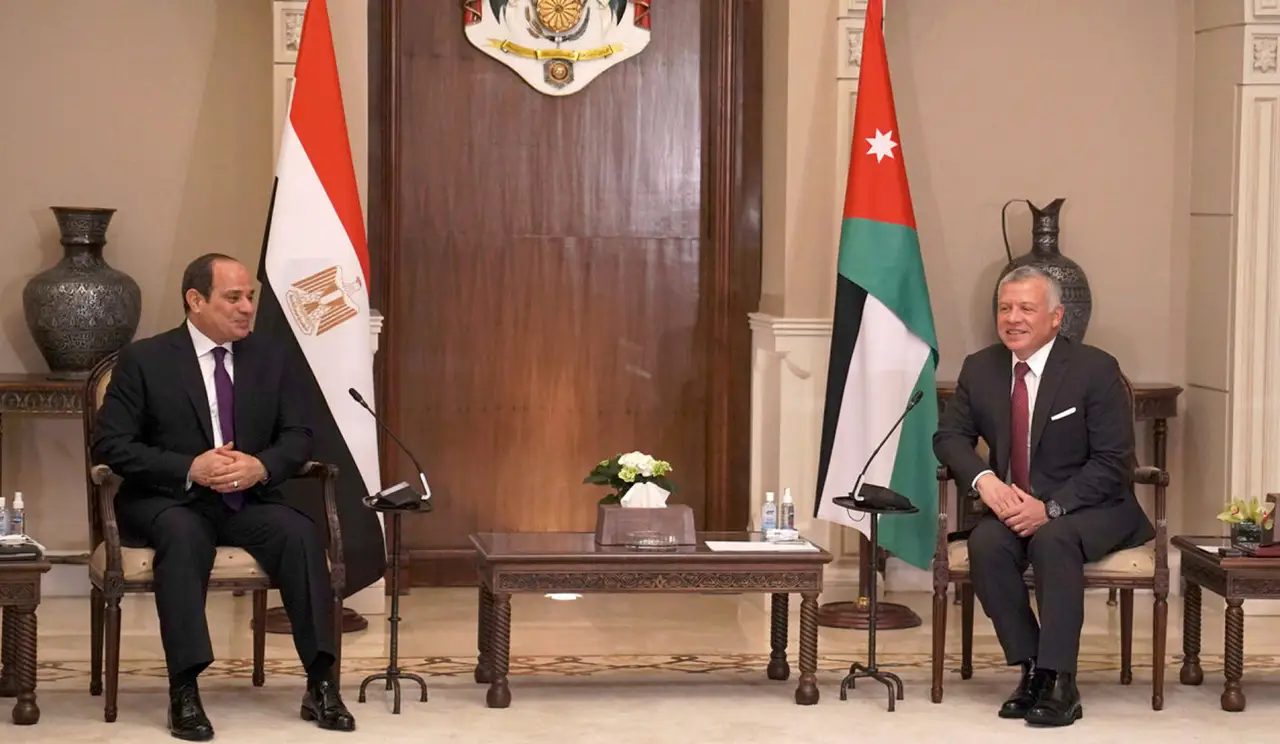
Sissi and King Abdullah discuss regional issues, including the vote for Palestinian Authority leadership, in which Egypt and Jordan would play an important role in supervising – if it actually takes place
Egyptian President Abdel-Fattah al-Sissi met on Monday with King Abdullah of Jordan in Amman to discuss regional issues, including the Palestinian election that President Mahmoud Abbas said over the weekend would take place later this year.
Palestinian sources said that Egypt and Jordan would play an important role in supervising the election – which would be the first since 2006 if it actually takes place – and also in facilitating reconciliation talks between Abbas’ Fatah party and the rival Hamas, which governs the Gaza Strip.
Senior Jordanian officials also attended the meeting, and the Jordanian news agency said the two leaders discussed a range of diplomatic issues, including Joe Biden’s upcoming entry into the White House, tensions with Iran, the recent reconciliation among the Gulf states and Israel’s normalization agreements with several Arab countries.
Sissi’s visit to Amman followed a quick visit by Abdullah to the United Arab Emirates, where he met with Crown Prince Mohammed bin Zayed.
A day before the meeting in Amman, Abbas met in Ramallah with the heads of the Egyptian and Jordanian intelligence services, generals Abbas Kamel and Ahmad Husni, respectively. Palestinian news agency Wafa reported that Majed Faraj, the head of the Palestinian intelligence service, also attended that meeting, and that Abbas briefed his visitors on progress in the reconciliation talks and preparations for the elections.
The visit to Ramallah by the two intelligence chiefs shows that Cairo and Amman are closely following developments in the Palestinian arena and trying to assess both how serious Abbas is about finally holding elections and their possible impact on the region. Palestinian sources said that meetings of this type are used to coordinate positions and send messages to various parties, sometimes including Israel.
